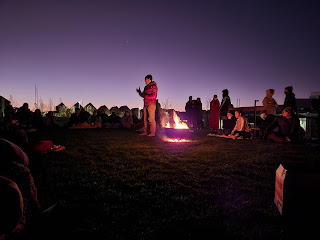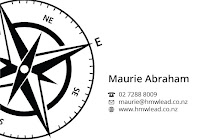2023 was a year of uncertainty for me. But sitting here right now 2024 is one of excitement. The thing I'm most excited about is to work with Derek Wenmouth. Early next year we are running a a 20-week professional development programme for principals, focusing on wellbeing, innovation and change. I really love the model we have come up with as we support principals to Refresh Reconnect and Refocus through two retreats (kicking off at Hanmer Springs in late March) bookending 20 weeks of remote mentoring and connecting. We still have some places left but confirmations must be received by 4 February to secure a place in the programme. Please help us spread the word to let others know about this exciting opportunity.
Find out more here.I finished up as Foundation Principal of Hobsonville Point Secondary School in July this year. It took 2 years, initially keeping it to myself, to come to the conclusion that that was the right time to leave. Of the many decisions I've had to make in my career this was one of the hardest. I loved my work, I loved the people I was working with, I loved the students and I felt I was still making a difference. But I'm convinced it was time for someone else to lead and take the school further into the future.
In this post I wrote about the moving haka I experienced on my final day and also on what my plans were in the future, considering I believed that I could still make a contribution in the education field.
My plans centred around forming HMWLead (How Might We Lead) and offering opportunities to partner with schools and their leadership teams to explore ways of leading in such a dynamic environment.
In one of my first posts with HMWLead I wrote of the importance of having a clear understanding of and strong commitment to your personal 'why' as a leader. Having a clear understanding of your 'why' or moral purpose, in my view, gives a leader the courage to lead. My personal model of leadership captured in this visual shows not only the importance of Moral Purpose and Courage but also accepting the sometimes quite challenging position that you might be wrong (Open to Learning).
In a further post I focused on the view that the number one principle for effective schools seems to be that they have clearly articulated and shared beliefs about learning that are lived in every classroom.
I then proposed that the clearly articulated and shared beliefs about learning that are lived in every classroom need to be driven by a vision and mission which are deeply informed by new contexts for learning. In the previous post I stated that, in the end, it doesn't matter what the core beliefs about learning are but that it was vital that they were lived in every classroom. But, of course, it does matter.
If we start, as we should, with the question:
- "How do children and adults learn most powerfully and deeply in their lives?" (Modern Learners).
- "When they leave us, what will our students need to be able to do, and what kind of people will they be?" (Modern Learners)





















